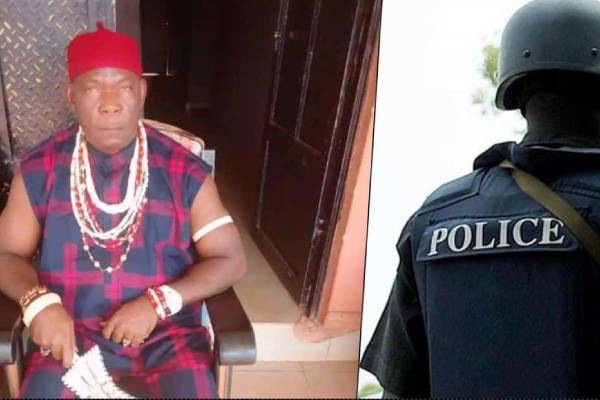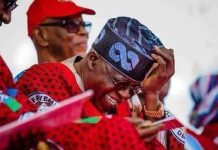Frederick Nwajagu, the Eze Ndigbo of Ajao Estate, has filed an appeal against the judgement handed down by the Lagos State High Court sitting at Tafawa Balewa Square, which convicted him of unlawfully parading himself as a titled chief in Lagos.
In January, Justice Yetunde Adesanya convicted Nwajagu for illegally presenting himself as a titled chief in Lagos, although he was acquitted of terrorism charges.
In his Notice of Appeal, which was filed by his lawyer, Emefo Etudo, Nwajagu is challenging the constitutionality of Sections 26-36 of the Obas and Chiefs of Lagos State Law (1981). He argues that these provisions infringe upon Sections 39 and 40 of the 1999 Constitution of the Federal Republic of Nigeria (as amended).
- ‘I Have Concrete Evidence’ – Senator Natasha Responds to Akpabio’s Wife Over Sexual Harassment Allegations
- VIDEO: Dangote refinery targets full capacity
Nwajagu is seeking the appellate court to overturn the lower court’s ruling regarding his conviction under the Lagos State Chiefs Law. He is also requesting a full acquittal and discharge.
Justice Adesanya had acquitted and discharged Nwajagu of the terrorism charges, ruling that the Lagos State Government had failed to prove the allegations beyond a reasonable doubt. However, the court found Nwajagu guilty of unlawfully presenting himself as a titled chief, an offence under the Obas and Chiefs Law of Lagos State. He was sentenced to one year in prison without the option of a fine.
Since Nwajagu had already spent more than a year in custody during the trial, the court ruled that he had effectively served his sentence and was free to go.
Nwajagu, aged 67, was arrested on April 1, 2023, following a viral video in which he allegedly threatened to invite members of the Indigenous People of Biafra (IPOB) to Lagos to protect the properties of Igbo residents.
In his Notice of Appeal, Nwajagu, through his counsel, submitted that the judgement was delivered despite the fact that his activities, and those of the Igbo-speaking community in Ajao Estate, were constitutionally protected, falling within their rights to freedom of association and expression, as guaranteed under Sections 39 and 40 of the 1999 Constitution.
It was further argued that any restrictions imposed by the Obas and Chiefs of Lagos State Law (1981) on these constitutional rights are void, as they contradict the 1999 Constitution of the Federal Republic of Nigeria (as amended).
The appellant contended that his trial and conviction, based on such unconstitutional restrictions of his rights, were unlawful. He urged the court to rule that the trial judge erred in convicting him for violating Section 34 of the Obas and Chiefs of Lagos State Law (1981)—a conviction that contradicts Section 166 of the Administration of Criminal Justice (Repeal and Re-enactment) Law of Lagos State 2015.
Nwajagu further argued that the prosecution failed to establish a contravention of Section 34 of the Obas and Chiefs of Lagos State Law (1981), which allows for conviction for other offences if the evidence supports such a finding.
He asserted that the circumstances of the case did not justify a conviction under this section, as the prosecution failed to prove any of the nine charges filed against him or any other offence.
Nwajagu argued that neither he nor the Igbo-speaking community publicly declared the creation of a kingship or chieftaincy.
“The defendant did not present himself to the public as a traditional ruler or create awareness of such a title,” he stated.
He further argued that the cultural activities within his private residence could not, in themselves, establish a kingship or chieftaincy.
No date has yet been set for the hearing of the appeal.




